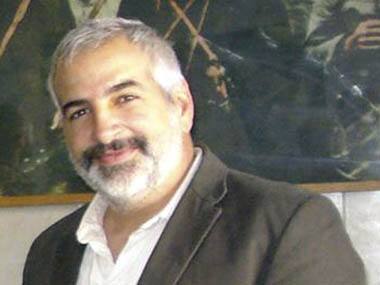Anthony Shadid is dead. The 43-year old foreign correspondent succumbed to an asthma attack while on assignment in Syria. ‘Shadeed who?,’ many of us might ask. He was an Arab-American reporter who wrote for leading US publications, including the Washington Post, New York Times et al. It’s sad news but why should we care? The answer can be discerned in his professional commitment and courage of conviction; in his nuanced, thoughtful reportage on a part of the world that is rarely covered with either nuance or thought; in his rare willingness to put life and limb at risk in the course of journalistic duty – and an even rarer humility. Speaking of his experience last year in Libya – he and three other New York Times journalists, were held and physically abused, and his driver, Mohammad Shaglouf, killed – he says:
When I think back to the day, I blame myself more than I blame others in not leaving sooner. And I’ve gone over in my mind why I didn’t leave sooner. And I hope it was for the right reasons — that this wouldn’t have been covered otherwise. And I figure it was for the wrong reasons — that there was ambition in play. And we stayed too long, and I think any one of us could have forced the issue and I should have, but I didn’t. … We took such incredible risks for a story that I don’t think was worth taking those risks for, but it’s something I didn’t realize until much later. And by the time we left, it was too late.
[caption id=“attachment_216585” align=“alignleft” width=“380” caption=“Handout of two-time Pulitzer Prize winner Shadid, one of four New York Times journalists, who had been captured by Libyan forces while covering the conflict there, posing at the Turkish embassy in Tripoli. Reuters”]
 [/caption] Shadid is best known for his brilliant on-the-ground reporting during the invasion of Iraq which earned him a Pulitzer in 2004.
Here he is
writing about an air attack:
[/caption] Shadid is best known for his brilliant on-the-ground reporting during the invasion of Iraq which earned him a Pulitzer in 2004.
Here he is
writing about an air attack:
Next door, two workers had been scurrying around the Dulaimi Restaurant, preparing for lunchtime. Both were killed in an instant. The restaurant’s red and blue tiles lay splintered on the sidewalk, plastic white tables and chairs were turned upside down, wires hung from the ceiling like a spider’s web and its sign dangled overhead, giving perch to a bird. Within moments, the second blast struck the other side of the street. Qais Sabah and his family of eight were sitting down to a breakfast of falafel, boiled eggs and bread. They jumped at the first explosion, then were thrown to the ground by the second. Hours later, the 35-year-old day laborer looked out over the detritus of his house. A cracked porcelain plate that read “God” hung askew on the wall. On the sidewalk outside was the severed hand of Samad Rabai, 17, the owner of an appliance store.
While other reporters safely embedded themselves in the bosom of the US military, Shadid chose to bear witness to stories of people whose voices were silenced by the din of war. Stories no one wanted to hear in post-9/11 America. In that dark moment, he reminded his peers and his readers of the lost nobility of his profession. RIP Anthony Shadid. You will be missed.
)